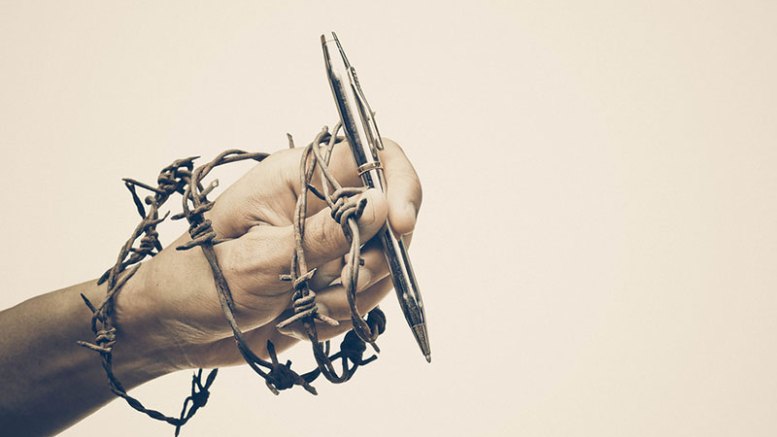
In the wake of increasing attacks on the freedom of the media in India, the NWMI’s 17th National Meeting (January 27-29,2023) in Patna, Bihar, calls upon journalists, media workers and the public to stand up for press freedom, ethical journalism, gender equality and social justice.
A statement issued by the Network of Women in the Media (NWMI) on January 30, states that “New forms of censorship are being regularly deployed to further intimidate and muzzle the media. Recent measures include the draft amendment to the Information Technology (Intermediary Guidelines and Digital Media Ethics Code) Rules 2021 on fake news, the blocking of the BBC documentary, legal attacks on journalists’ right to protect their sources of news and removal of safeguards for journalists in the Digital Personal Data Protection Bill.
“Increased surveillance and the takedown of social media posts have become normalised. The continued foisting of motivated cases against and incarceration of journalists is unacceptable. The undeclared travel restrictions on journalists, particularly from Kashmir, have deprived them of their right to mobility. Their freedom to write and report on crucial issues is restricted and they are penalised for reporting on human rights violations in the Valley.
“Such restrictions and assaults endanger the right of journalists to practice their profession.
“The online violence against women journalists and the impunity that denies them justice, the toxic work environment in many newsrooms, sexual harassment in workplaces and the prevailing precarity of journalists in India, rendered unorganised due to contractualisation, impinges on the human rights of women media professionals, including the fundamental right to livelihood. Women journalists continue to face the challenge of access to employment and disparity in wages, while leadership positions in the media are still denied to them.
“Bihar has been the site of historic struggles for social justice, in which women, especially from marginalised communities, have played an active part, as well as for media freedom, as was evident from the successful protests against the 1982 Bihar Press Bill. It is therefore all the more disappointing that only a negligible number of women are employed in the media in Bihar even today.
“Exclusions due to patriarchy, caste, class, tribe, religion, disability and other such factors are wholly undemocratic and intolerable in the 21st Century.
“Openly hate-mongering reportage by partisan media has exacerbated the situation, plunging the country into a vortex of violence, uncertainty and chaos.
“Today, voices of dissent continue to be throttled, and people’s movements criminalised. The marginalised sections of society are displaced and their natural resources destroyed, rendering them more powerless than ever before.”
The entire focus of the NWMI’s 17th national meet was “Media, Gender and Social Justice: Towards an Equitable Society”. Over a hundred media women, representing over 20 states – from Kashmir to Kerala, Nagaland and Assam to Orissa and Maharashtra – and working in multiple languages, gathered in Patna in January 2023 to discuss issues concerning freedom of expression, challenges and opportunities for local and regional media, marginalisation and exclusion in the media on the basis of gender, caste, disability, etc, and online abuse and digital security.
A special session on “Experiments with social justice and the Bihar model” dwelt on the historical and current patterns of governance in a state categorised as “backward”, with special attention to the rationale for and impact of policies and initiatives such as liquor prohibition, reservations and other facilities for women, the ongoing caste census, and so on.
The national meet, held in the Aryabhatta Knowledge University, was an opportunity for the network to strengthen solidarity and reaffirm our responsibility and commitment to uphold media freedom and media workers’ rights, as well as to hold the powers that be to account.
The resolution may be read here: https://nwmindia.org/
Related:
India, with seven journalists jailed, draws criticism over its curtailment of media freedoms
Kashmir: Journalist Aasif Sultan jailed under PSA, after getting bail
Does news of assaults on journalists not reach any minister’s reading list?
Remember journalists Siddique Kappan, Aasif Sultan, Kishorechandra Wangkhem?
